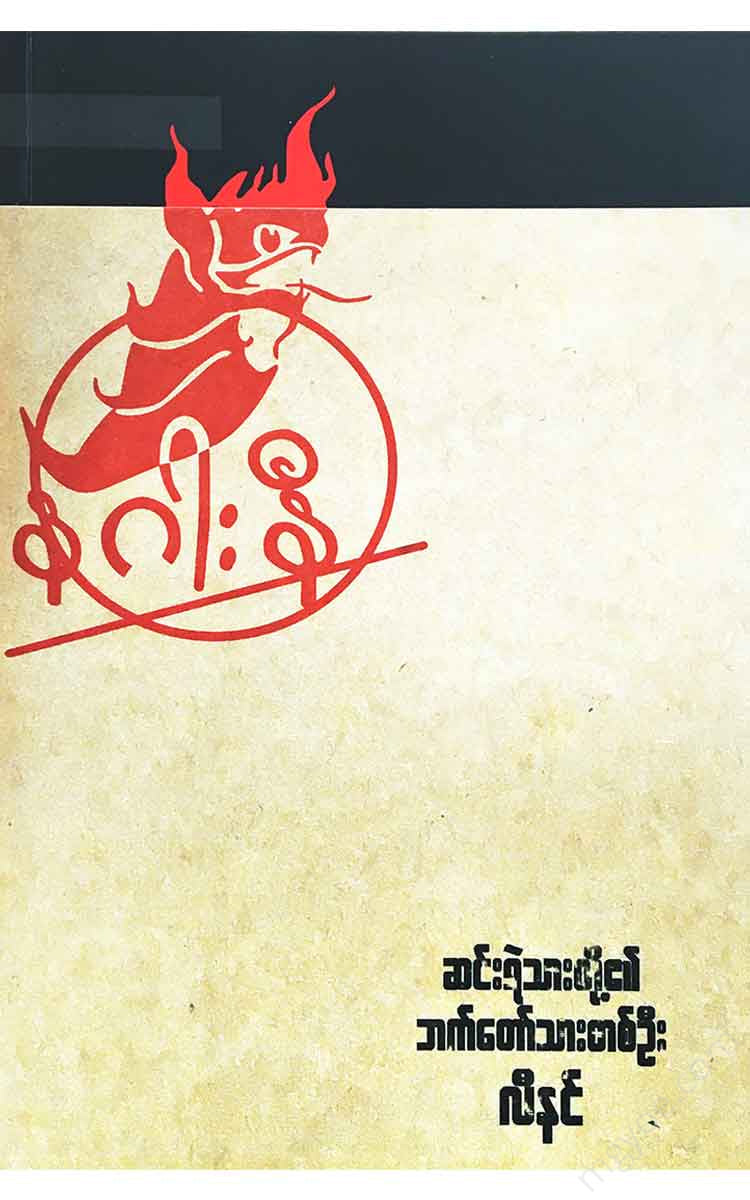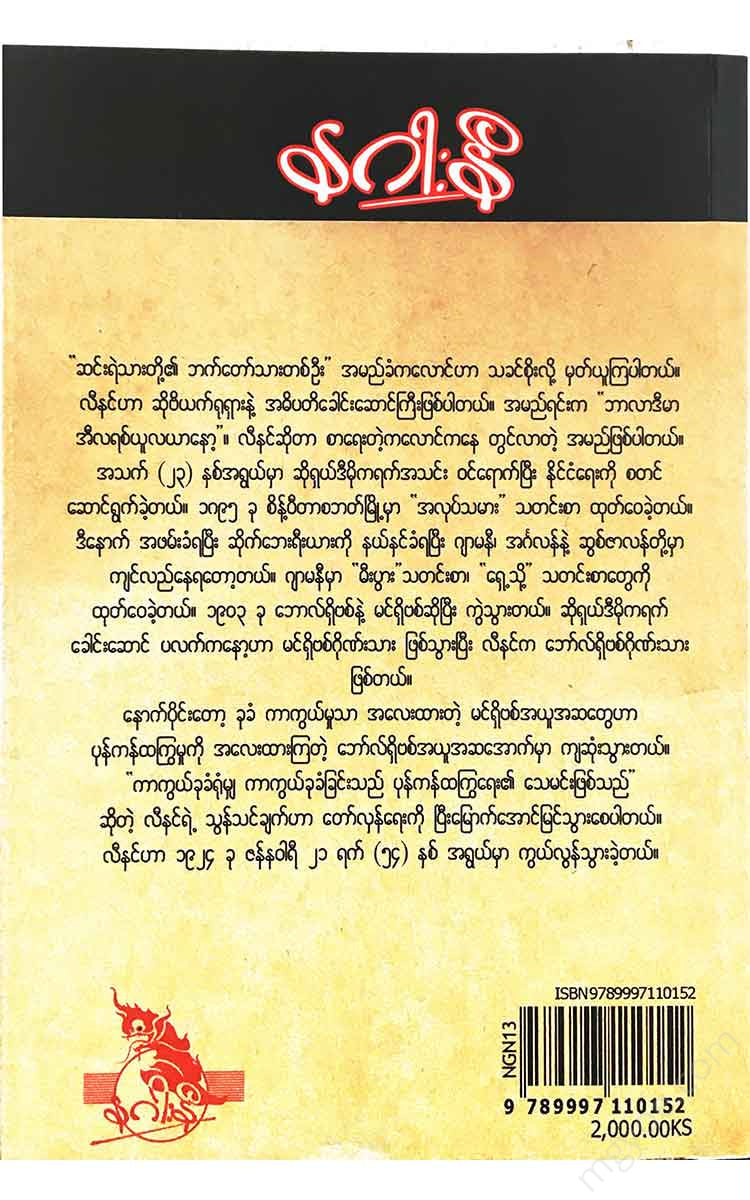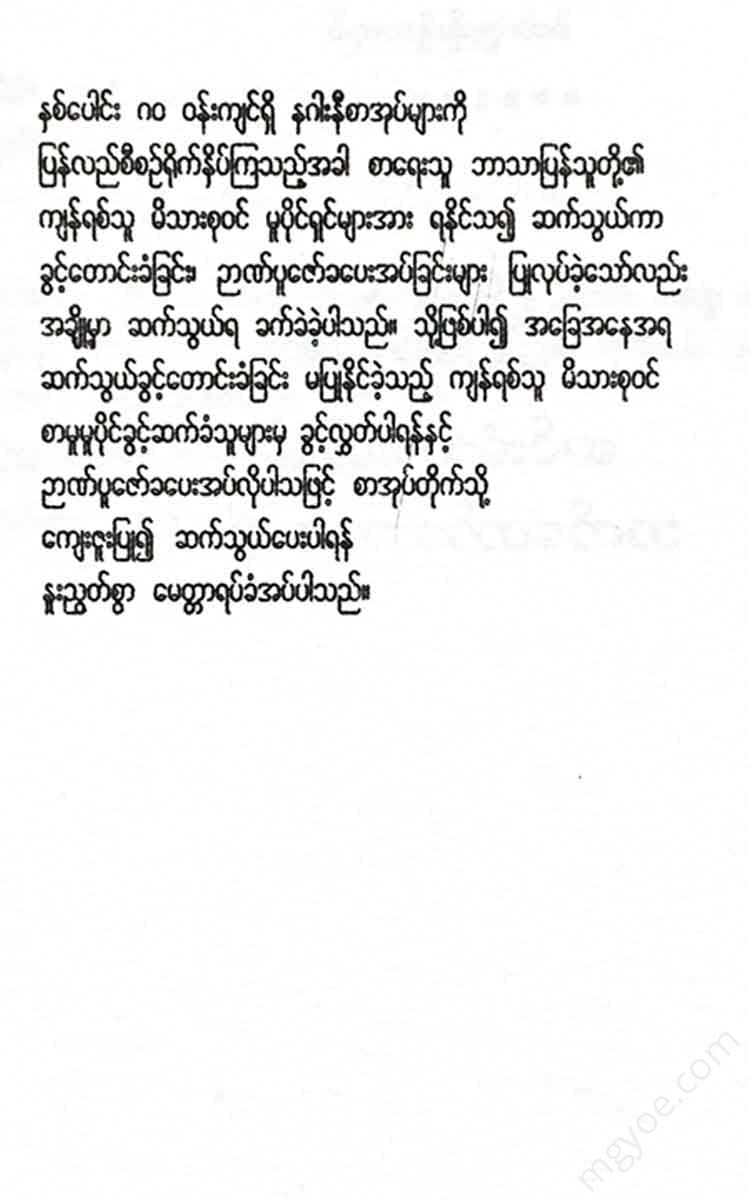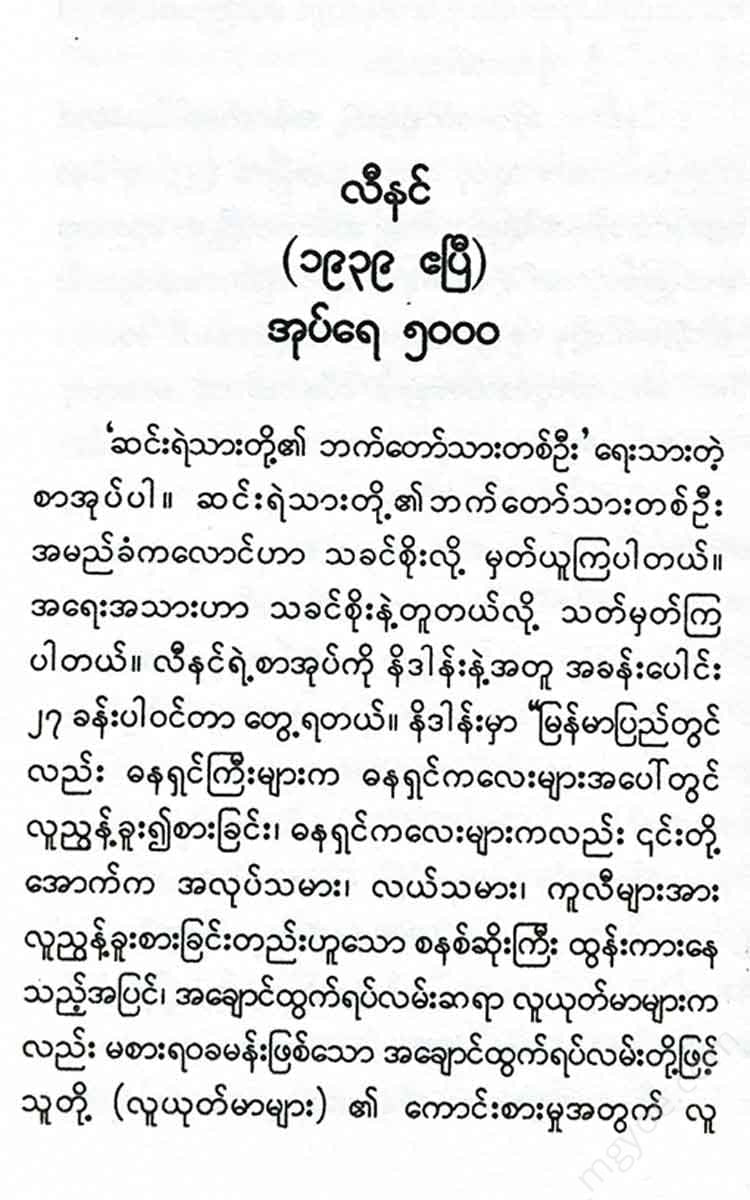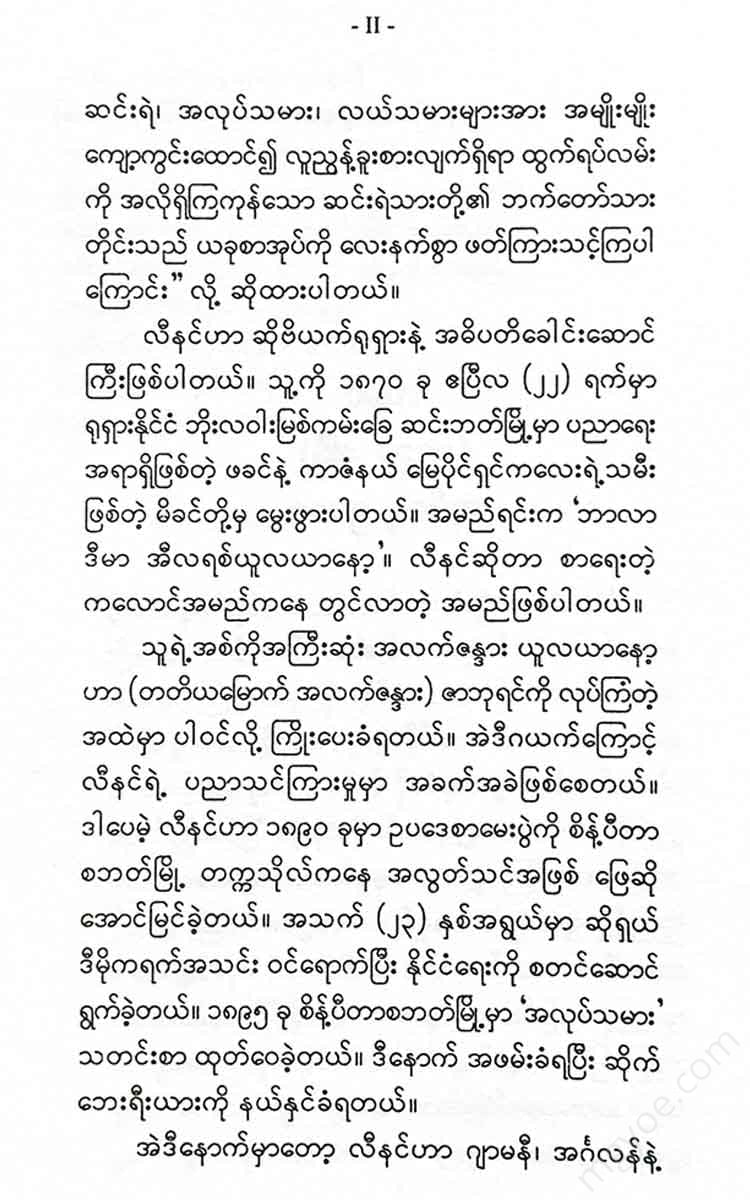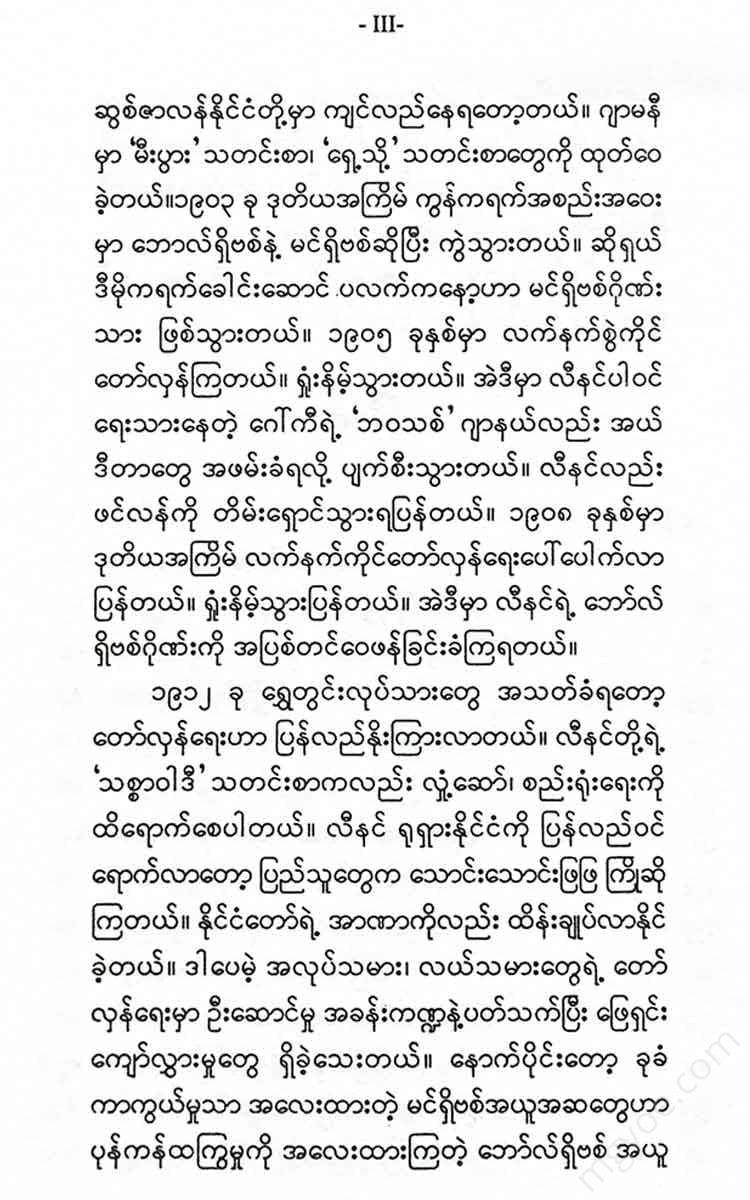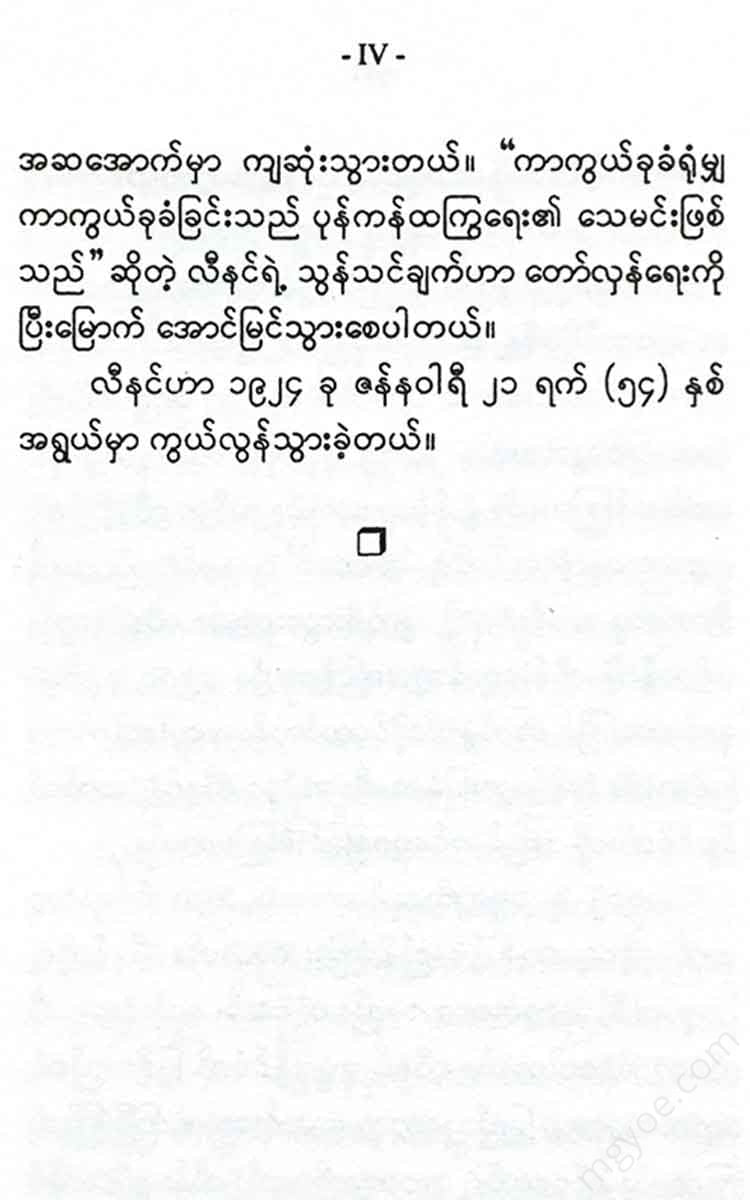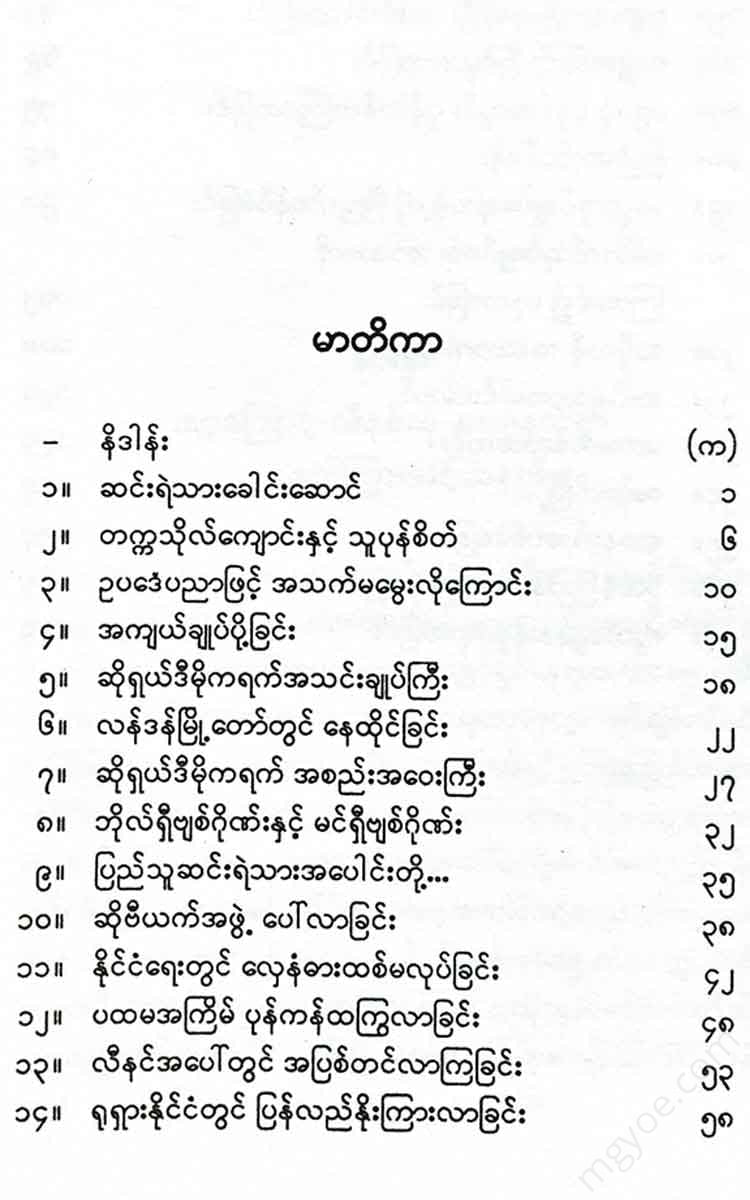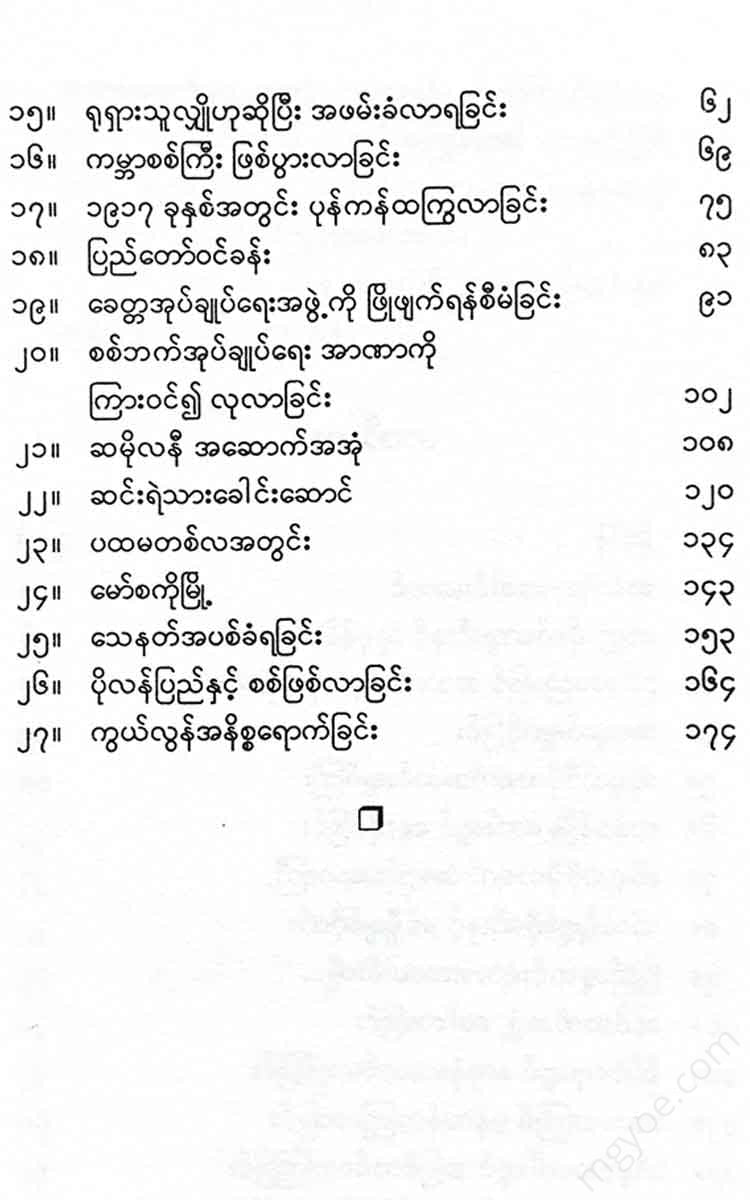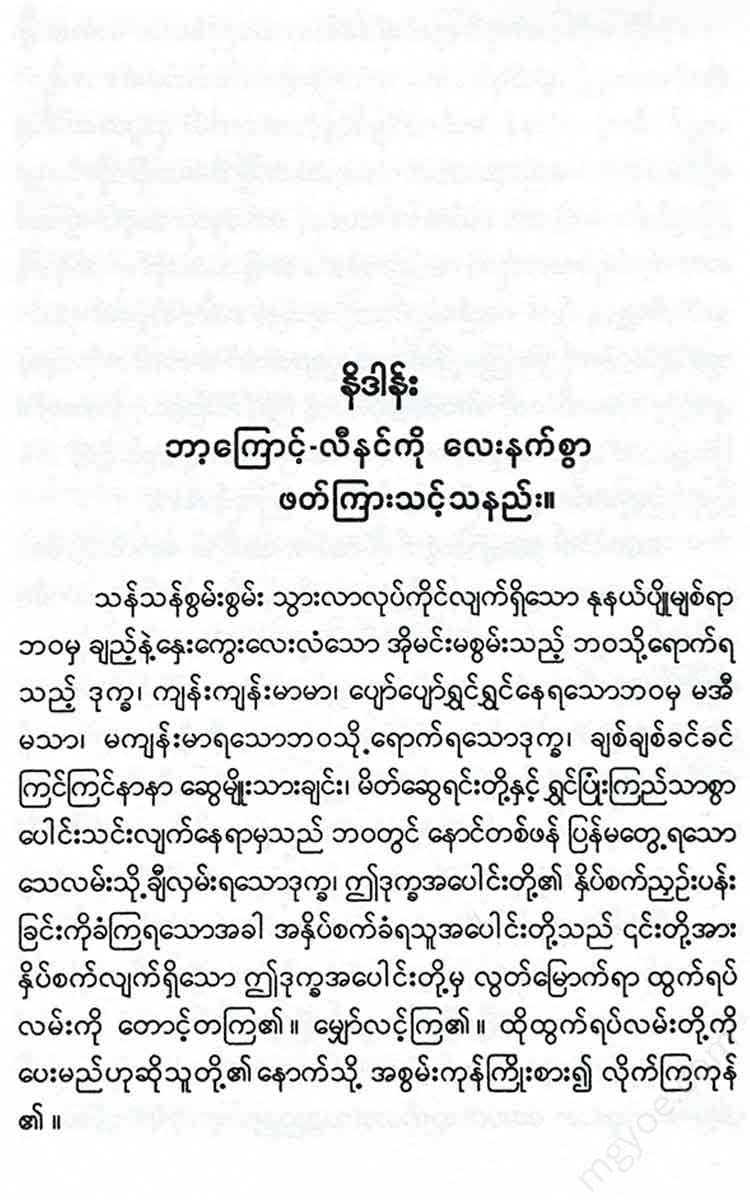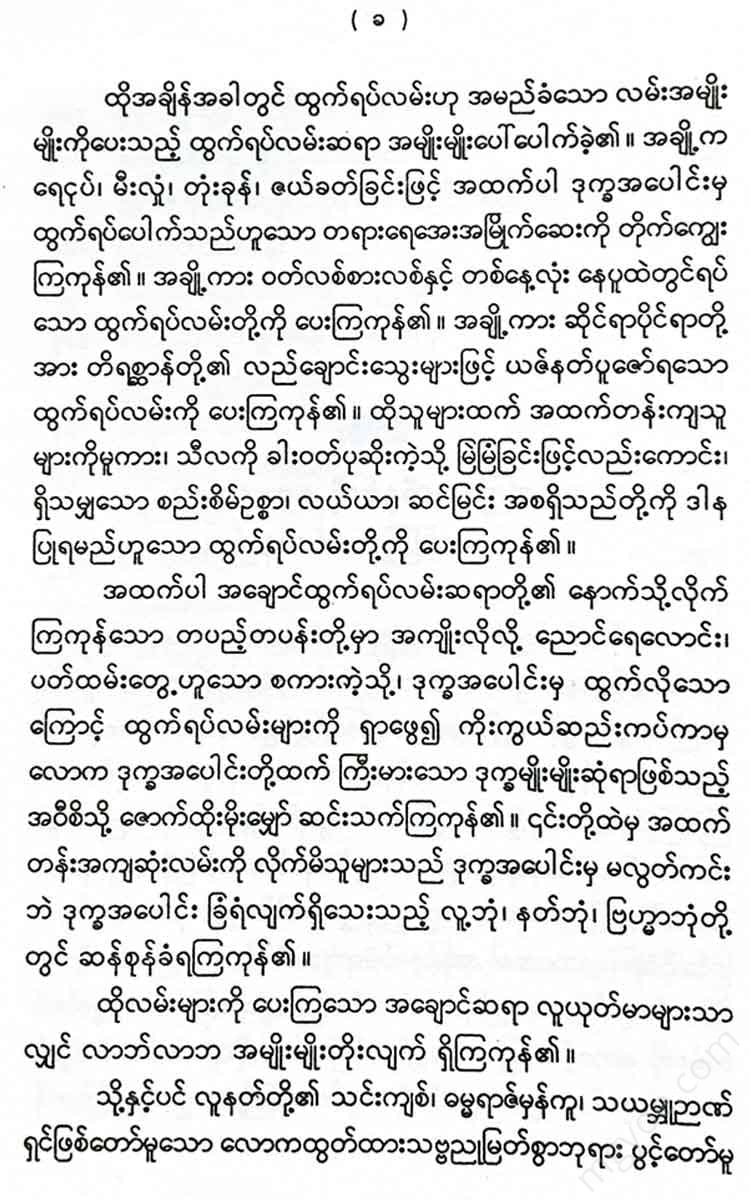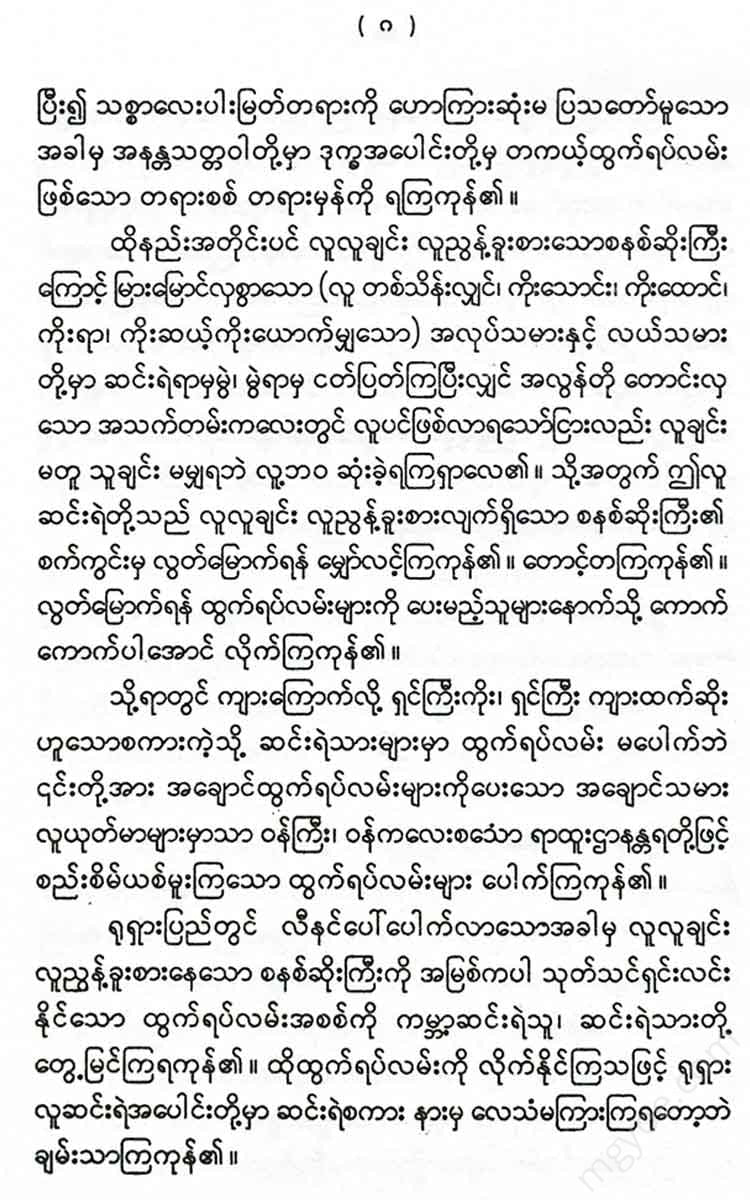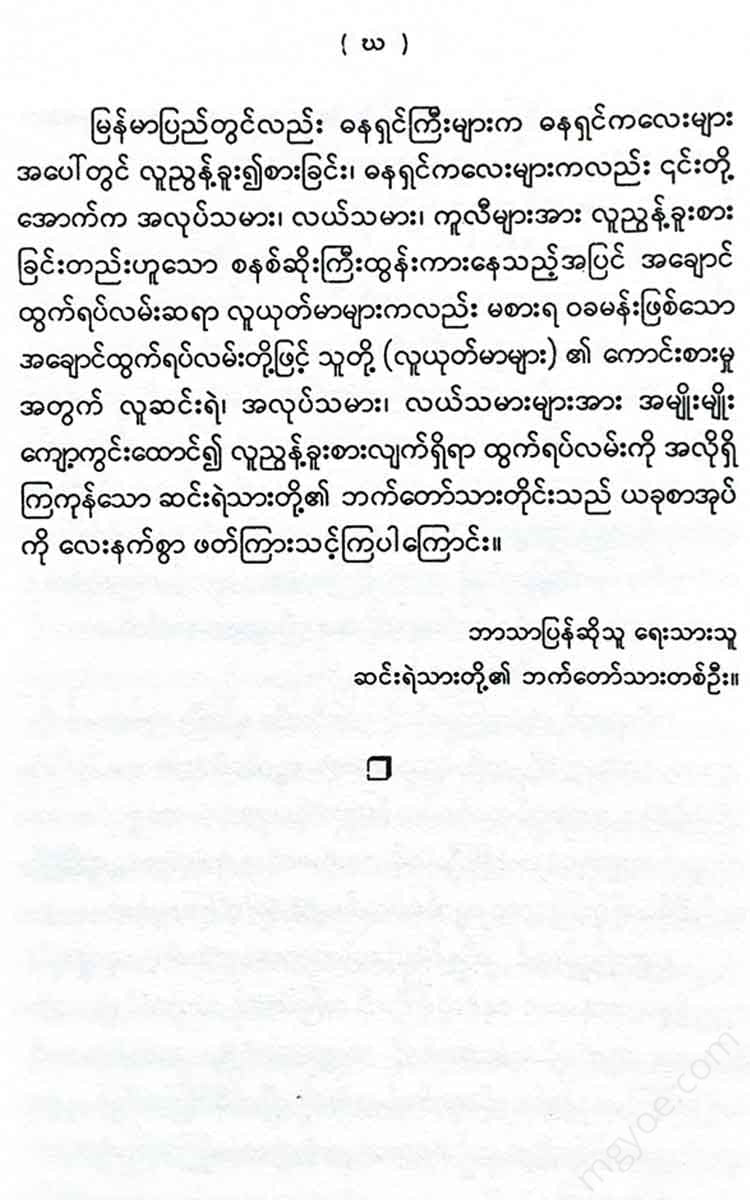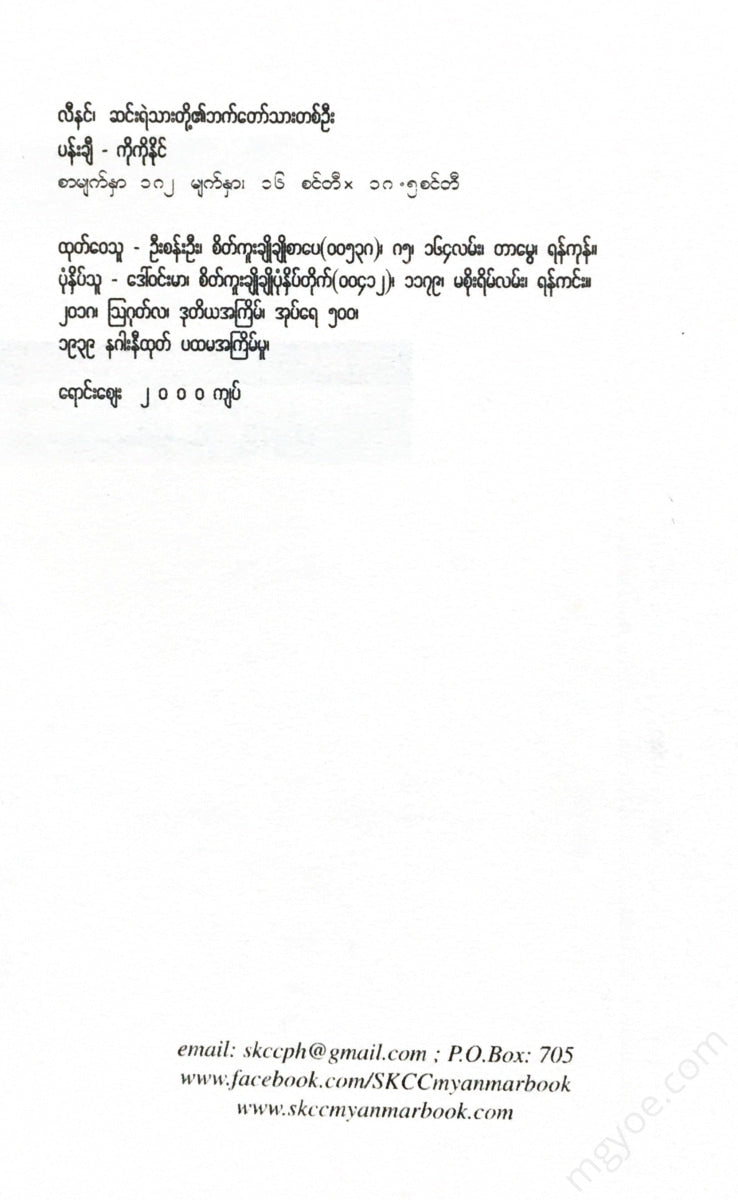စိတ်ကူးချိုချိုစာပေ
Lenin - A champion of the poor
Lenin - A champion of the poor
Couldn't load pickup availability
Lenin was born on April 22, 1870, in the city of Sint-Berg, on the banks of the Bolga River, in Russia. The name “Lenin” was given to him when he became an adult and began his political career. His real name was “Bladimir Ilyich Ulyanov.” Lenin’s parents were neither upper nor lower class, but middle class.
His father was an education official in Sinbek, and his mother was the daughter of a landowner in the Kazan region. Although his father was an education official and had no political involvement, he seemed to have a political bent, as he looked after his children.
Lenin had six siblings, the eldest of whom was Alexander Yulianov (Alexander III) who was convicted of involvement in the assassination of the Tsar and was executed. His younger sister was a student.
While studying at school, she was almost killed as a child. "Lenin and his siblings all joined the Russian Revolution when they were growing up, but their mother did not interfere. When their father died in 1886, the mother alone was left to mourn the future misfortunes of her children."
On the cold morning of March 8, 1887, before most people in St. Petersburg had risen from their beds, Lenin's brother Alexander Yulianov and five young men were escorted by military police to the riverbank. The five young men were sentenced to death for their role in the assassination attempt on the Tsar.
When they reached the river port, they put the five young men back on the boat and took them back to the old castle, where they were to be hanged. There were also more than twenty political prisoners in the old castle, and when they saw the five young men being brought to be hanged, they were filled with awe.
After 1884, the young people in Russia became disillusioned with the uprising and abandoned it. After the assassination of the Tsar of Russia (Alexander II), one of the leaders of the uprising, Taykimovich, himself became disillusioned with the uprising and published a pamphlet entitled “Why should I become disillusioned with the uprising?” As mentioned, the young people in Russia were disillusioned with the uprising, and there were still some young people who were plotting to assassinate the Tsar and the nobles and officials.
Their intention was to reignite the dormant rebellion in Russia. Thus, under the leadership of Lenin's brother, Alexander Yulianov,
A group of young men plotted to assassinate the Tsar (who was later known as Alexander III).
The plan was that Tsar Alexander III would visit the tomb of Tsar Alexander II once a year, and he would be bombed on his visit. After this plan was completed, a group of young men led by Alexander Yulianov were constantly under surveillance by the government detectives, as they had received information from the detectives. However, they were not aware that the detectives were watching them, and they were arrested just as they were about to bomb the tomb as planned.
Then, five young men, led by Lenin's brother Alexander Lyanov, were arrested and brought to trial for their involvement in the assassination attempt on the Tsar.
Then, the leader Lenin's brother, Alexander Ulyanov, boldly declared that the assassination was for the sake of the freedom and well-being of Russia, that the poor people of Russia were suffering greatly because of the Tsar's bad rule, and that he would not spare his life for the freedom and well-being of those poor people. Even if he were executed, he would be satisfied that he had done something for Russia, and that there were still people left who would continue to do so after he was gone.
Just as they boldly expressed their intentions, the court sentenced them to death by hanging.
As a child, Lenin entered the Higher School in Sint-Petersburg and studied literature. At that time, the headmaster of the school was the father of Kerensky. Kerensky had been the prime minister who had overthrown the Tsar and formed a provisional government after the revolution in Russia, and from whom the government of Russia was taken by the Soviets, led by Lenin.
Lenin's brilliant intellect was evident even then, as he completed his studies at the high school in Sinbuk and passed the exams at the top.
Since the age of 17, I have been studying and reading the books on the philosophy of the world-famous German philosopher Karl Marx.
After his brother Alexander Yulanov was hanged for his role in the assassination attempt on the Tsar, Lenin and his siblings were disgraced, and Lenin was even expelled from the entrance exams to the Sinbad High School. However, he was allowed to take the exams with the support of his teacher and some influential people.
Lenin had also been deeply hurt by the Tsar since the day his brother was executed. However, Lenin did not like the method of secretly threatening to kill the Tsar and his officials. He firmly believed that the evil government in Russia could not be changed by simply killing the Tsar or any of his officials, but only when the masses of the poor people in the country rose up and rebelled.
In Sinbek, a small town, Lenin met many Russian workers, poor people, and peasants, and had the opportunity to see firsthand their living conditions.
